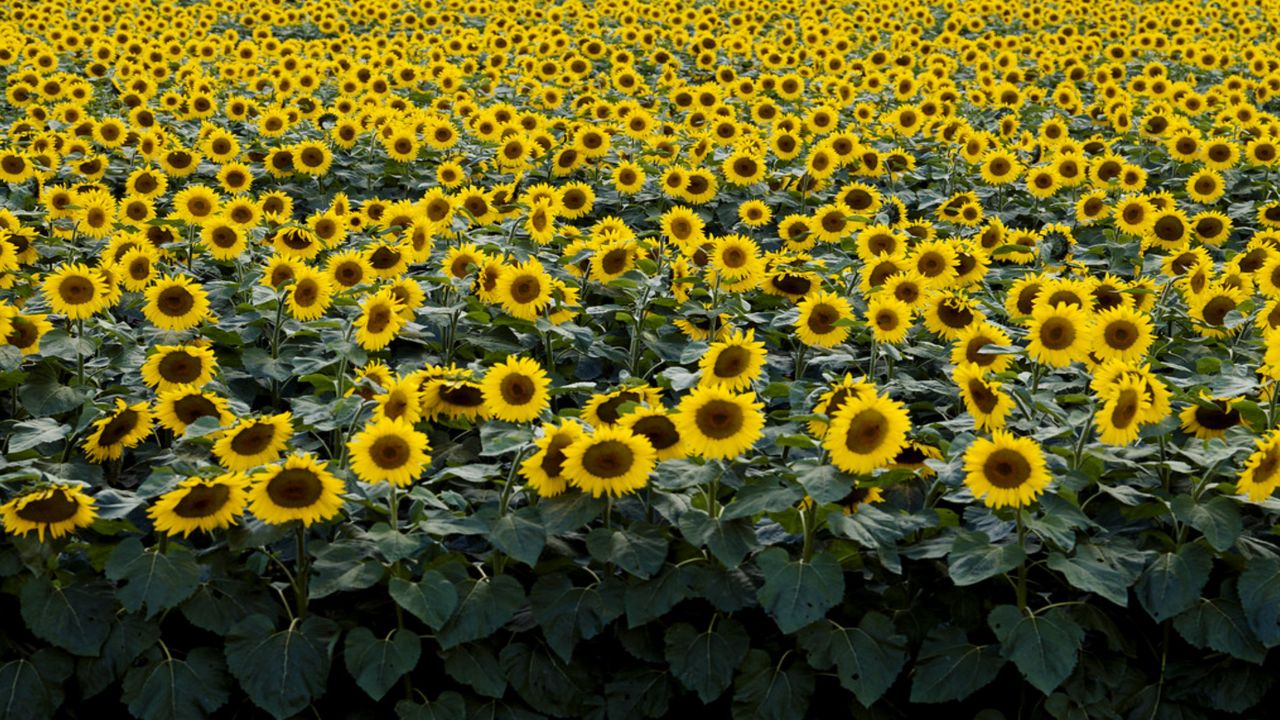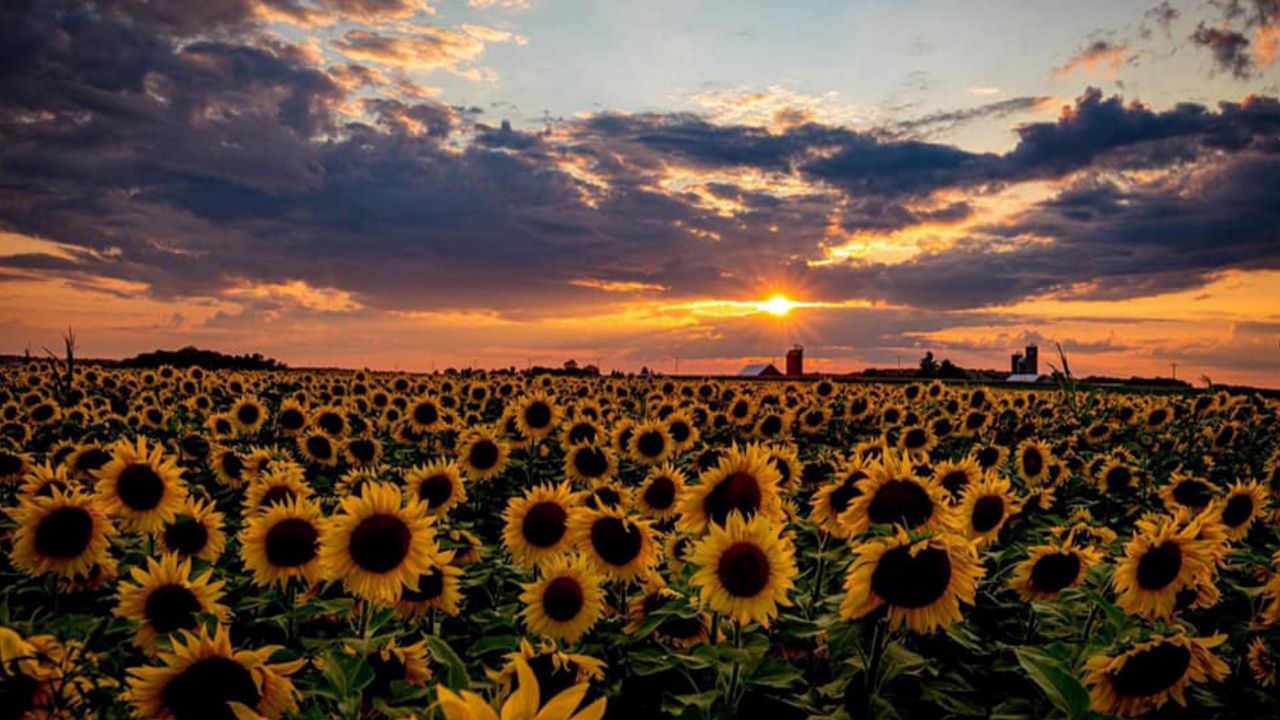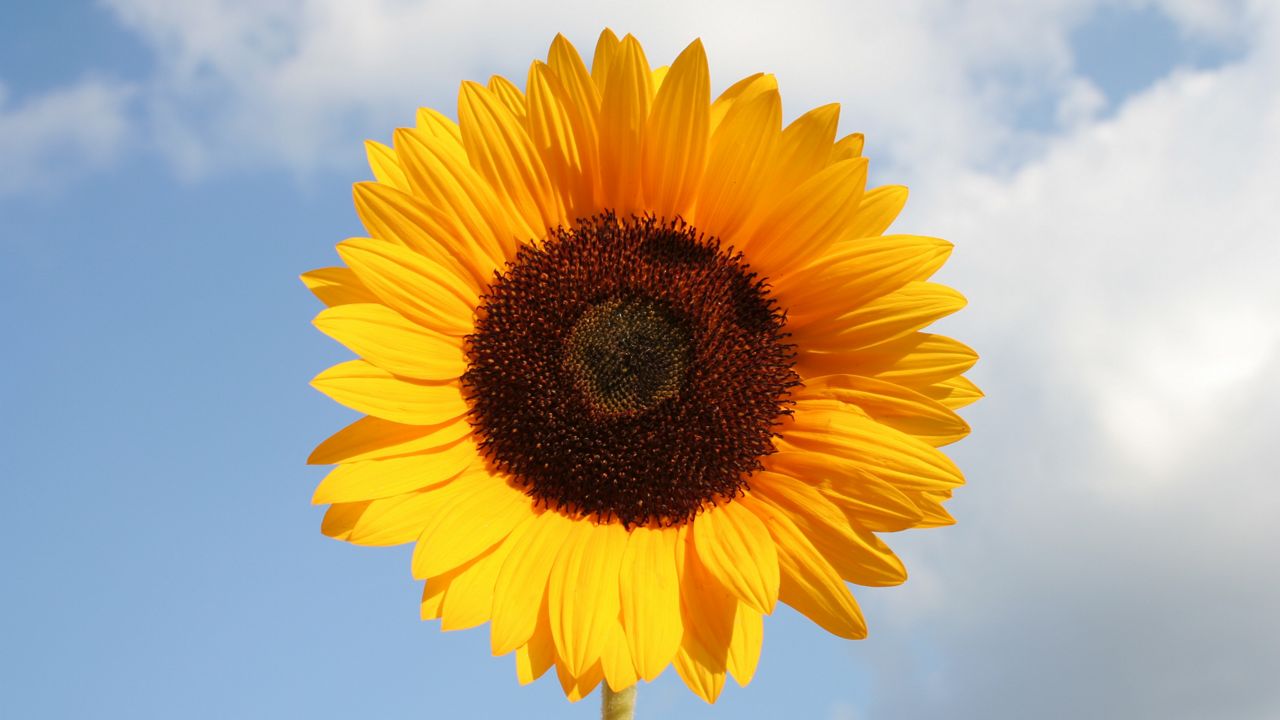It is the time of year when people flock to sunflower fields and capture the beauty of the flower, but what does it take for sunflowers to thrive?
As someone who studied meteorology and agricultural sciences in college, I always like seeing what conditions certain crops grow best in. And when it comes to the ever-popular sunflower, I thought I'd take a closer look.

Let's start with the amount of light it requires. As the name suggests, sunflowers do best in ample sunshine. Since sunflowers are heliotropic (they follow the sun), more sunlight leads to the plant remaining straight.
As for water, like most plants, an average amount of water is necessary. What does that mean? Check the soil conditions. If the soil is too dry, you will need to water. If the soil is over-saturated, you will need to allow time for it to dry out.
During periods of drought, a sunflower will stop blooming. Despite Wisconsin seeing some serious stretches of drought this summer, it seems that the sunflowers fields were still able to succeed (I'm sure with the help of additional watering).
Finally, let's talk about temperatures. I definitely have something in common with sunflowers: I love temperatures in the 70s. And sunflowers do best when the temperature is anywhere from about 70 to 78 degrees.
This is good news for Wisconsin farmers due to the cooler temperatures we see during the summer months.

It's always fun to visit a sunflower field in the summer months. And the good news for Wisconsinites is there are plenty across the state.
Here's a list of sunflower farms in Wisconsin:
- Lannon Sunflower Farm - Menomonee Falls
- Bergsbaken Farms - Cecil
- Thompson Sunflower Farm - Bristol
- Oak Rest Farms Sunflowers - Burlington
- Babbette's Seeds of Hope - Eau Claire
- Shimon Sunflower Farm - Slinger
- Sunflower Hill Farm - New Glarus
- Skelly's Farm Market - Janesville
- Hartland Organic Family Farm LLC - Hartland
- Sunflower Barns of Bristol - Bristol
- The Orchard Store at Old Homestead - Franksville
- Heritage Flower Farm - Mukwonago
- Creek Bed Country Farmacy - Poynette
- Eugster's Farm Market - Stoughton



